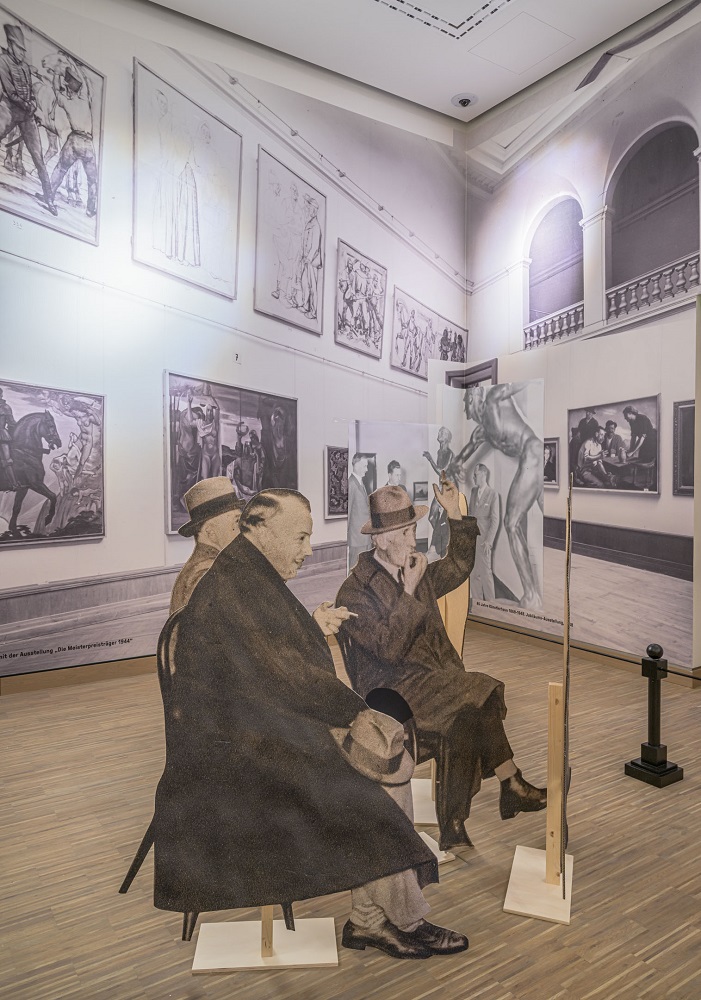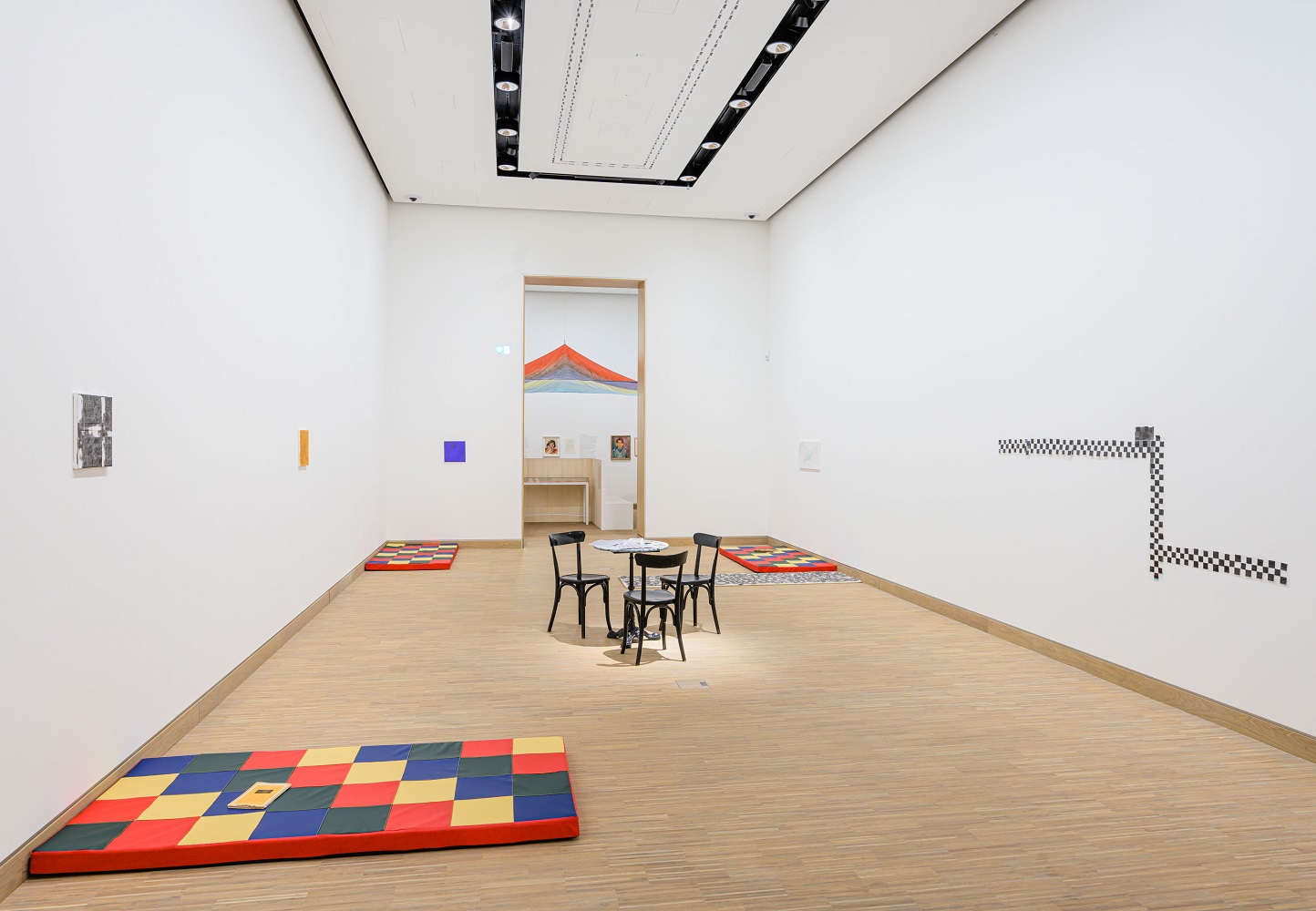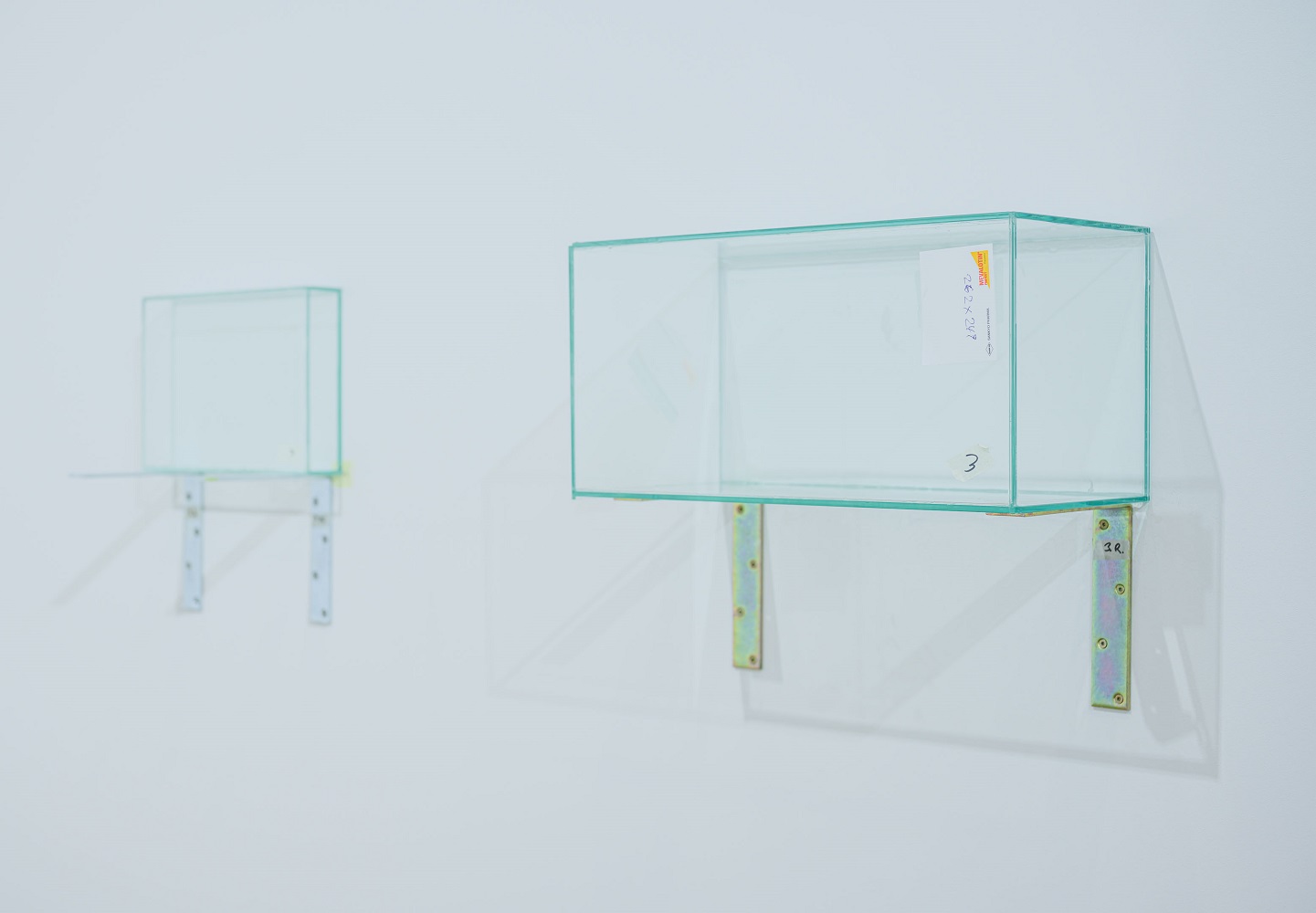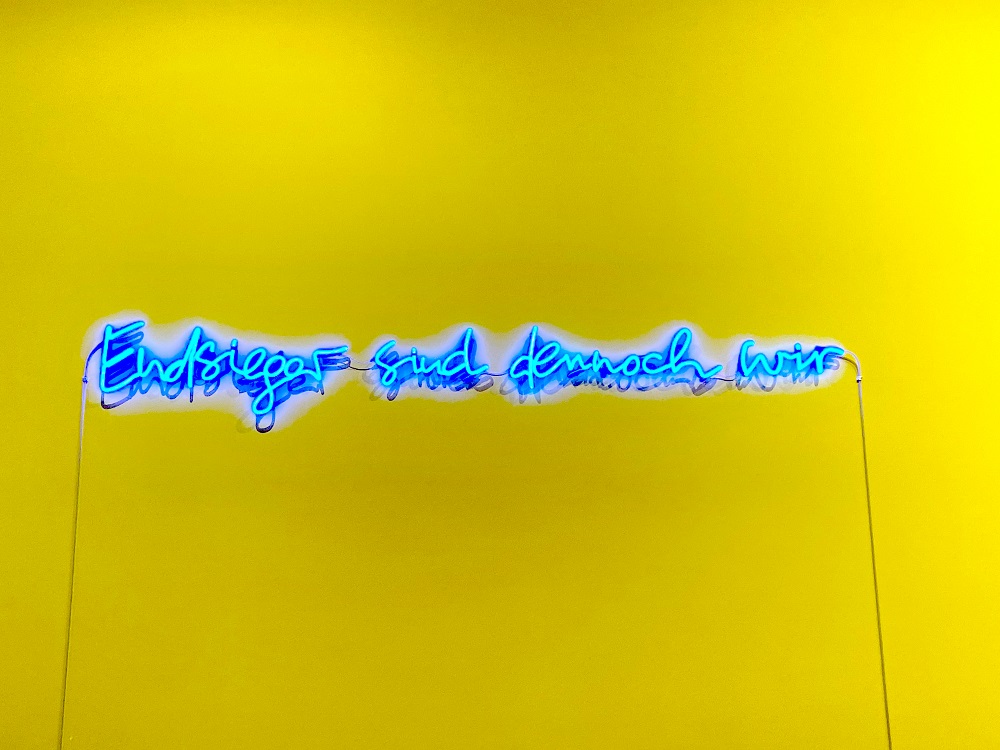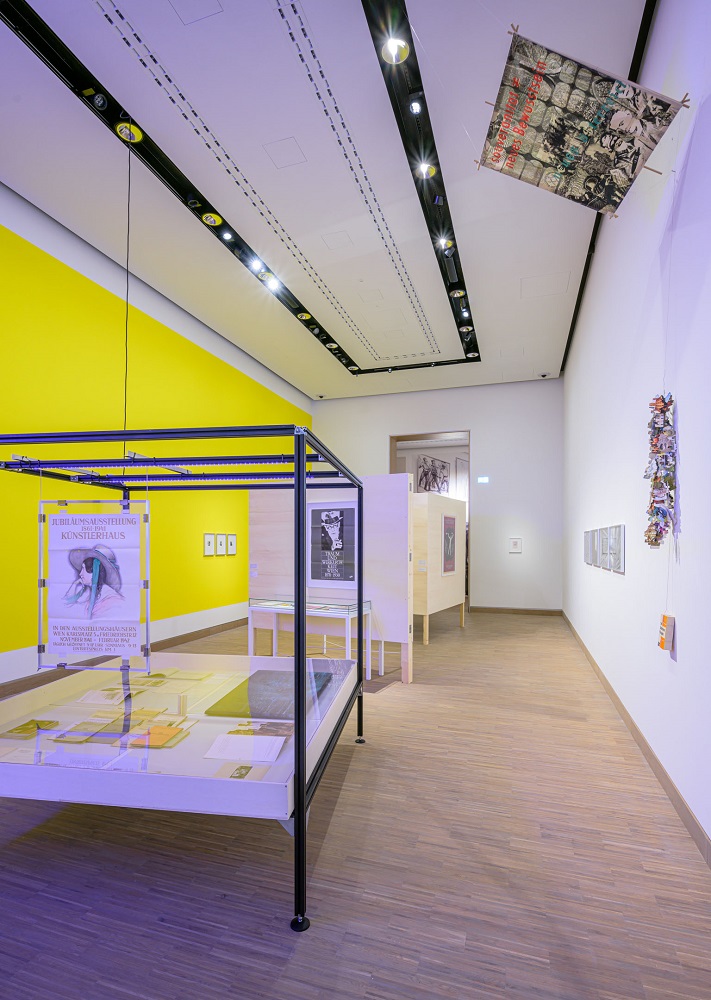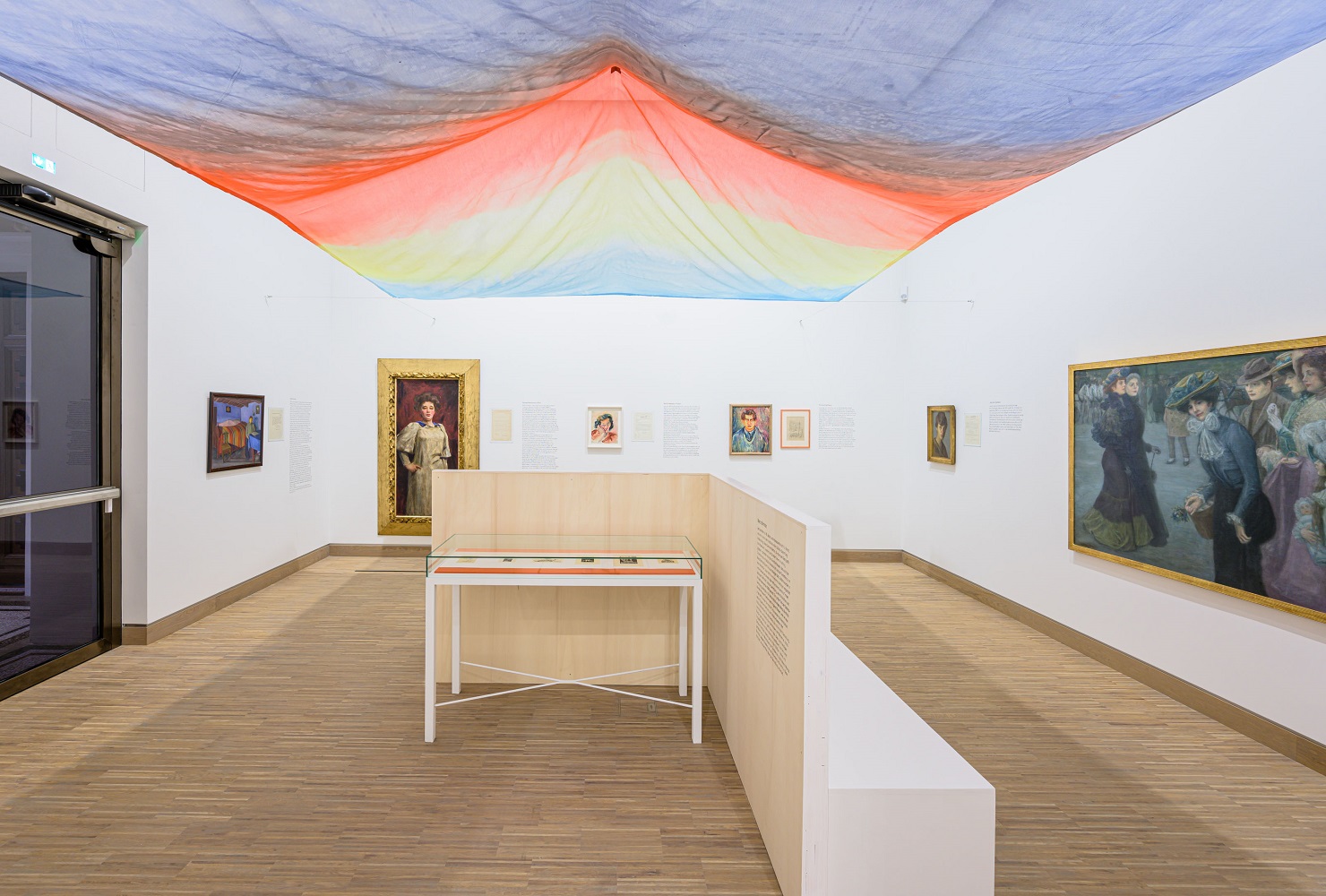
DISPOSSESSION
Künstlerhaus
Gesellschaft bildender Künstlerinnen und Künstler Österreichs
Karlsplatz 5, 1010 Wien
23.09.2021 – 16.01.2022
Curated by Ariane Müller
Artists:
Linda Bilda, Stephan Janitzky, Anita Leisz, Sophie Lillie & Arye Wachsmuth, Henrik Olesen
With works of:
Richard Apflauer, Theodor Bruckner, Jehudo Epstein, Otto Herschel, Sofie Korner, Gerda Matejka-Felden, Teresa Feodorowna Ries, Anni Schulz, Friedrich Schön, Heinrich Sussmann, Willy Verkauf/ André Verlon und aus der Sammlung Marco Birnholz
Exhibition design: Ariane Müller and Jasmin Trabichler
Exhibition catalogue (PDF, German, 2,7 MB):
DISPOSSESSION Katalog
Wiener Künstlerhaus: Gedenkkultur neu denken
by Sophie Lillie and Arye Wachsmuth
Der Standard online, Jan 23, 2022
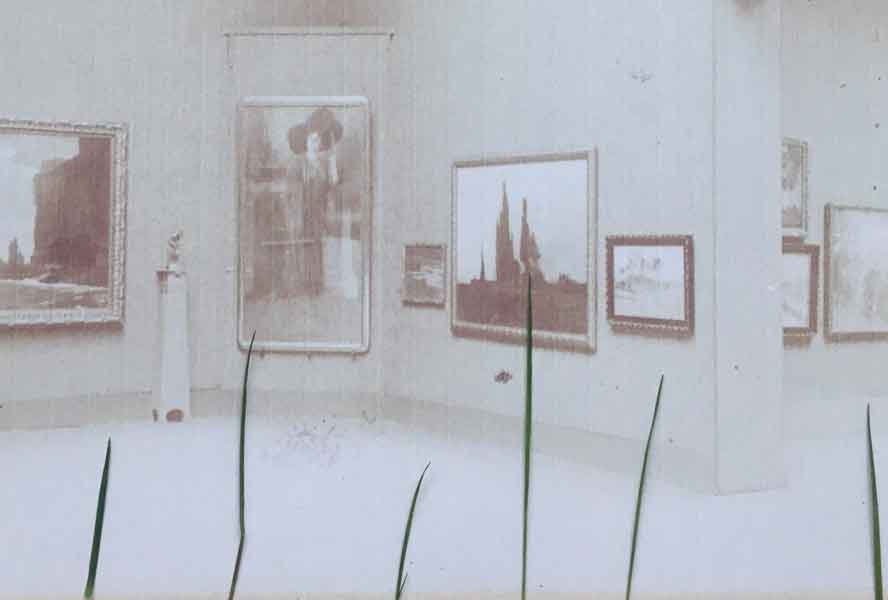
Two years ago, the artist Ariane Müller was invited by Tim Voss, who was then the artistic director of the Künstlerhaus, to conceive an exhibition dealing with the history of the Artists’ Association in the time before, during, and after National Socialist rule in Vienna.
The title Dispossession describes her approach to this topic and therewith also the methodology of the exhibition: Although “dispossession” is usually translated as “Enteignung” in German, this word does not fully capture the meaning of the English term. Possession, and even more importantly, the idea of being possessed, is missing in it. National Socialism, like any right-wing movement, was obsessed with categorising people. It defined attributions such as “Jewish”, “homosexual”, or “asocial” down to the last degrading detail. What was not “normal” was dismissed as “degenerate”. It reduced women to their reproductive function and was obsessed with the concept of race and the ideology of characteristics attached to it.
The people described in this way share the fact that they themselves were not given a say in the definition that devalued them. The actual purpose of this categorising description was to take something away from the people described by it. The exhibition argues against the notion of possessing qualities that result from external ascriptions.
The artists Linda Bilda, Stephan Janitzky, Anita Leisz, Henrik Olesen, Arye Wachsmuth, and the historian Sophie Lillie were invited to take part in this exhibition because they have been working for years on the complex issue of identity attribution, the aim of which is to fix, devalue, and thus dispossess individuals. The works were not created with a history of the Künstlerhaus in mind. Instead, they show very different ways of approaching it altogether. In doing so, they indicate that there are other logics than those conveyed by the surviving documents from this time, since these are also always part of what they describe.
The second part asks what kind of representation the Künstlerhaus provided for its members, and how much the reactionary socio-political orientation of this artists’ association has influenced our image of art. All one really has to do is walk through Vienna with open eyes. There is hardly an official administrative building, church, or state opera curtain in which a member of the Künstlerhaus was not involved. The Künstlerhaus had the power to exclude artists from this canon from commissions, orders, professorships, support, recognition, backing, practical help, and income – and did. Richard Apflauer, Theodor Bruckner, Jehudo Epstein, Hilda Goldwag, Sofie Korner, Gerda Matejka-Felden, Teresa Feodorowna Ries, and the collector Marco Birnholz were involved with the Künstlerhaus, but were either consistently excluded from membership or whose already-granted membership was later revoked.
This desolidarisation extended far into the post-war period and thus also had an impact on the presence of these artists in today’s public collections. Only very few works by these artists have survived. Dispossession now shows excerpts of some of these works in an exhibition presented by the very institution that abandoned the people who created them and was wholly unconcerned about their fate during their lifetime.
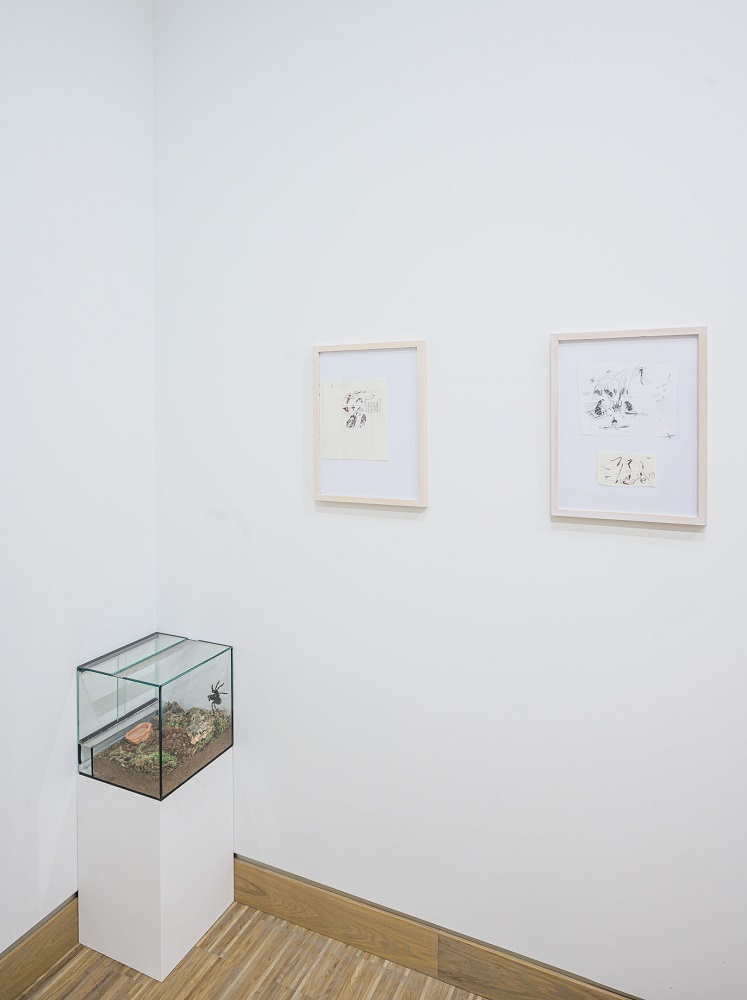
Linda Bilda
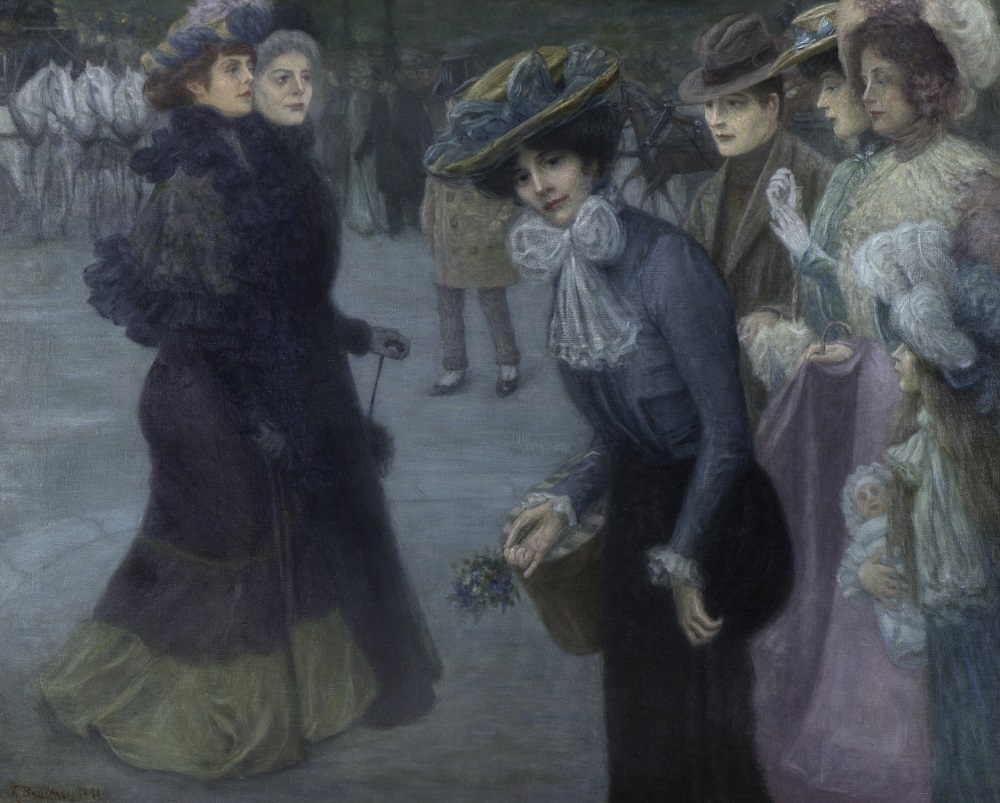
Theodor Bruckner
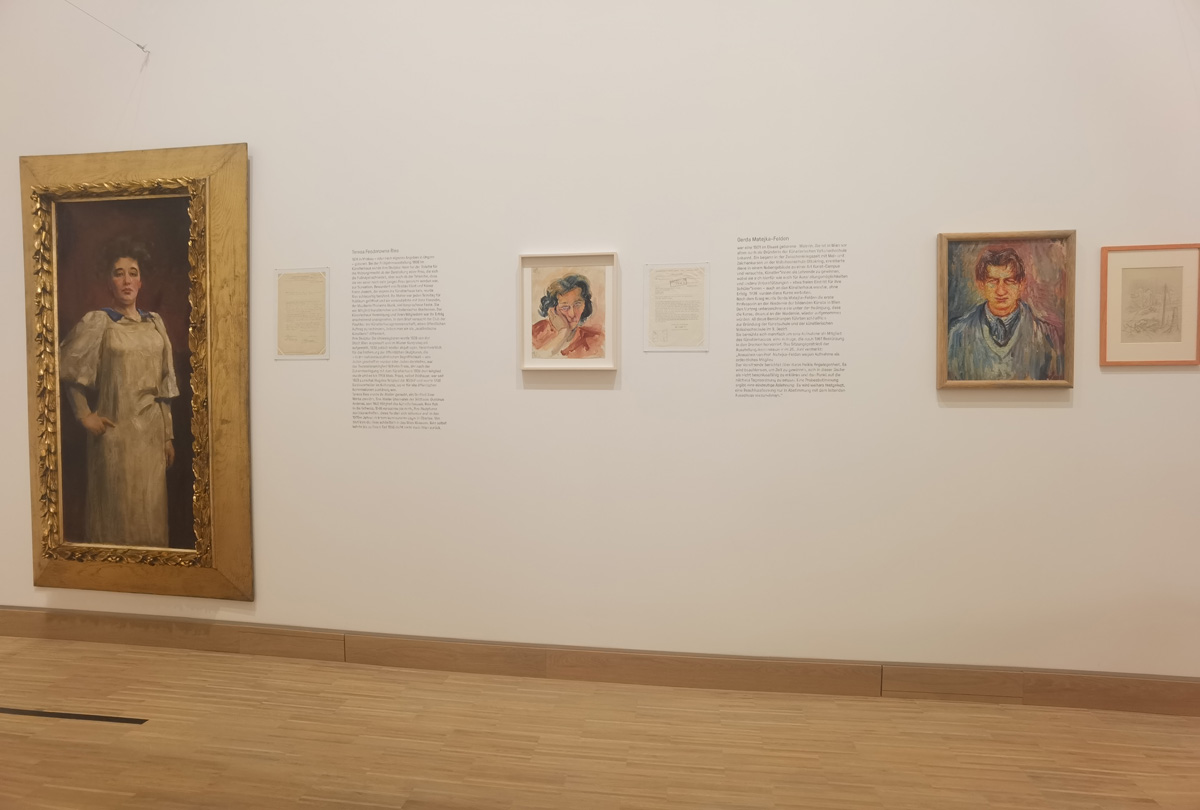
Teresa Feodorowna Ries, Gerda Matejka-Felden, Richard Apflauer
